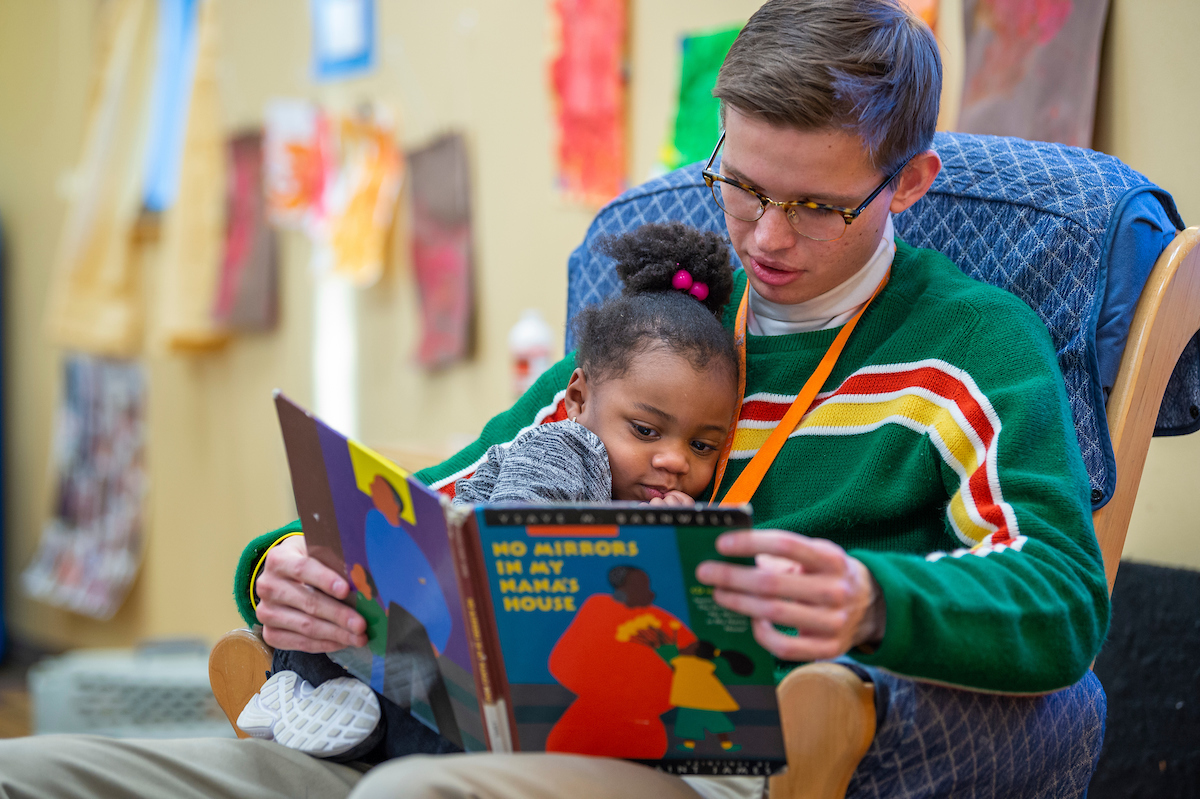
The need for trauma support has grown significantly in recent years and it’s not surprising that childhood trauma is currently considered a public health crisis in our nation. National studies estimate that as many as 71% of all children are exposed to a potentially traumatic event by the age of 17. These traumatic experiences put children at risk of serious short- and long-term physical and mental health impacts. Establishing a trauma-informed practice is more essential than ever with the pandemic and the subsequent stress and hardship it has placed on families, as seen in Clayton’s COVID-19 study.
Clayton Early Learning is committed to providing families with the health services they need to thrive, and a critical component of implementing our innovation hub is creating a trauma-informed practice that minimizes the long-term impacts of childhood trauma. Building effective infrastructure is imperative to successfully providing trauma care, so Clayton sought growth opportunities. Graciously, the Caring for Denver Foundation provided us with a grant to work with the Sanctuary Institute, whose model helps organizations create a culture-based trauma-informed practice that understands the impact of traumatic stress on children, families, and staff.
Complimentary to our whole child, whole family approach, the Institute’s entire culture approach creates a restorative culture that helps service providers like Clayton be emotionally available to each other and the children and families we serve. Clayton’s Comprehensive Services team is leading the effort and has already identified long-term goals for the program:
- Higher staff productivity through engagement and satisfaction
- Enhance awareness of trauma and impact from an organizational standpoint
- Improve staff and families’ sense of safety and belonging
- Decrease effects of secondary trauma on staff
- Reduce trauma symptoms in our students by providing multi-tiered support for families and staff
The Sanctuary Model has three phases of implementation, and all Clayton staff will receive the training. The first phase will engage staff in the training and planning process, while the following phases will embed and evaluate the new policies and practices created.
As a result of implementing the Clayton Trauma-Informed Practice, we hope to strengthen our staff, children, and families’ resilience to life stresses and pressures. Given the scope and urgency of the problems Denver, Colorado, and the nation are facing related to the impacts of childhood trauma, Clayton Early Learning is eager to create an effective Trauma-Informed Practice. We look forward to providing updates on this critical work over the coming months and years.









